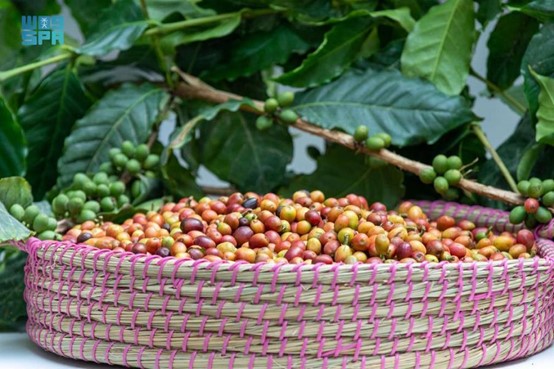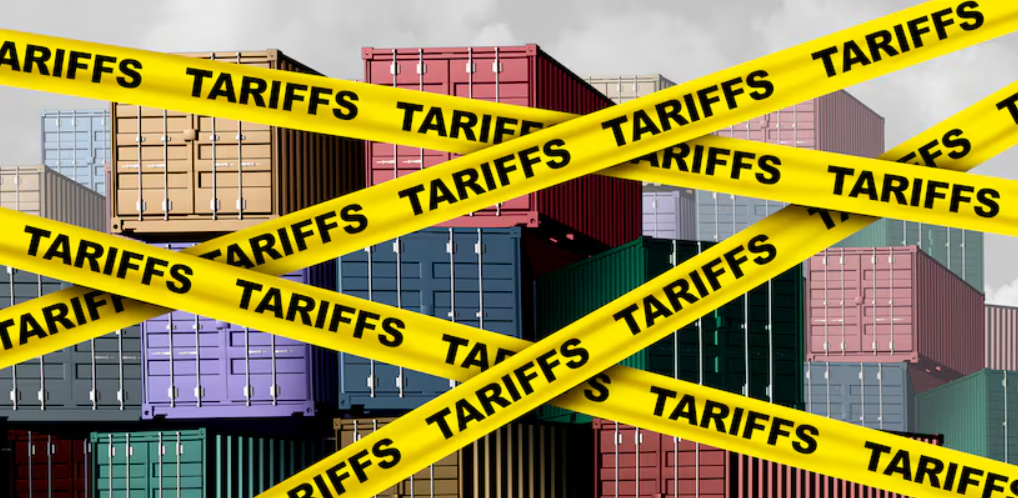Publisher: Maaal International Media Company
License: 465734
From almost 400,000 trees, across greater Sarawat area
As much 1,810 tons of Coffee Premium Khawlani Brand, annually, Produced
During the springtime season of each year, the smell of Khawlani coffee begin to waft through the mountains of Sarawat, coinciding with the annual harvest season.
The sounds of copper manual mills keep re-echoing the noisy roaring, and local roasters become in ongoing ignite, in the homes of the people of Jazan, Al Baha and Asir, in their mountainous provinces, and farmers race to display their crops harvested.
Everyone celebrates the beautiful songs inspired by the folk life inherited, since ancient times, translating into the joy of the great farmers, when they see the fields covered with their plants, preparing for the stages of harvest and the seasons to follow.
اقرأ المزيد
For its part, the Ministry of Environment, Water and Agriculture seeks to make 13 governorates, in the southwestern part of the Kingdom, an important source of coffee production, especially Khawlani coffee, distinctive by its quality over the rest of the species, and to raise the percentage of coffee production, in the Kingdom, in support of the national economy, in accordance with the objectives of the Kingdom’s Vision 2030.
These days, farmers in the mountainous provinces, in the southwestern parts of the Kingdom, have already begun harvesting and collecting the Khawlani coffee crop, in what is widely known as “Green Gold” or the pampered tree.
About 350 tons of pure coffee is secured, after peeling and thrashing, and the toll of coffee farms, have reached as many as 2,535, comprising as much as 398,000 coffee trees.
The tally of coffee farms, in Jazan region, alone, constitutes the bulk, with over 1,985 farms, containing as many as 340,000 coffee trees, in several mountainous areas of Faifa, Al-Aydabi, Harroub, Al-Raith and Al-Ardah.
Their gross product is about 1,320 tons annually, with a net, at 785 tons of coffee, after peeling.
Coffee farms in the mountainous governorates of the Asir region, where more than 300 farms, containing 40,000 trees grossly produce 200 tons of coffee, and a net of 100 tons of pure coffee extracted, after peeling and thrashing.
Then coffee farms, in Al-Baha region, where coffee production amounted to 40 tons, and the amount of the net coffee after peeling, is 20 tons from more than 250 coffee farms, that contained 18 thousand coffee trees.
The Kingdom is classified as one of the world’s largest coffee consuming countries, due to the high rate of coffee consumption per capita, in Saudi Arabia. The annual quantities imported to the Saudi market are estimated, at about 73,000 tons, and the average expenditure of Saudis on coffee preparation, is more than one SR1billion, per annum, especially, when the rate is exceeding 80,000 tons.
The Ministry of Environment, Water and Agriculture has started investing in “Al-Khulani”, in the southwestern part of the Kingdom, characterized with its suitable climate for the cultivation of the most important varieties of coffee, which have proven to be successful, under the climate and atmosphere conditions of the region.
The Ministry established a coffee research unit, at the Agricultural Research Center, in Jazan region, with the aim of getting close to coffee growers and identifying the most prominent obstacles to its cultivation, and providing integrated solutions and information for product development, through holding scientific seminars, on how to grow coffee and the need to provide water, fertilizer and the appropriate place to produce high quality of the crop.
An agreement was signed between the Kingdom and the International Fund for Agricultural Development (IFAD) in 2018 for reimbursable technical assistance, to improve the coffee and mango strains’ production, in the Kingdom.
It is noteworthy that the Kingdom is working on developing crops, with a comparative advantage and exploiting renewable water (rainwater), with the aim of supporting cultivating crops, with high economic returns, including so many tropical and semi-tropical crops, coffee among, rather, particularly.









